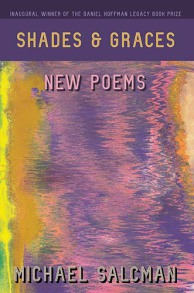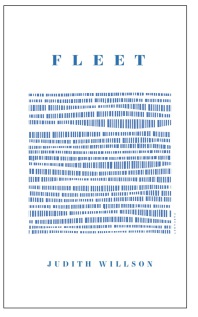
Michael Salcman, Shades and Graces,
Spuyten Duyvil Publishing, 2020.
ISBN: 978-1952419140. 110pp. $15.00.
“Shades and graces come in threes,” Michael Salcman writes about his cousins Hettie, Syd and Carl in “The Three Weisses,” one of the many elegiac poems in this thoughtful, brooding collection of poems. But the phrase that provides the title of the book gives a clue to that thinking: beauty and blessing are so intertwined with gloom and curse as to be like a coil of DNA at the foundation of our existence. Death and Life themselves are coiled in the same embrace. Indeed, the epigraph to “Life Stories,” the first of the four sections that make up this collection, from Kafka, sums it all up: “The meaning of life is that it stops.”
“Life Stories” is full of elegiac reminiscence, including “The Three Weisses.” There are also elegies to Duke Snider (“The Duke of Flatbush died today / and something closed.”), to a man named Henry Molaison, a patient (Salcman had a long career as a neurosurgeon) whose memory was “sundered after seizure surgery” and spent half a century unable to remember anything but his name. “Unlit / by any doubt, his inability to form new memories / protected him from history’s ugliest bits.” In “Open Casket,” Salcman attends the viewing of another patient who died at thirty-four after a six-year fight with cancer. The disease had spread from the colon to the lung, the brain, the spine; the poet recounts the relentless crushing grief of the patient’s family through the whole ordeal, parents and fiancée, their relief at his passing. “He looks so calm,” and “now, they thought he’s off to a better place, / but not before a last look at his face.”
Toward the end of the section, “Thanks for Not Calling,” a poem about loneliness, puts it succinctly:
It will be a lot cheaper not eating and less of a mess.
Here’s all I’ve learned about living:
you come alone, you go alone and in-between it’s a guess.
But there’s more to life than death, more to “Life Stories,” too, including love. In a series of poems, Salcman remembers meeting his life partner of over half a century (“On the Anniversary of the Moon Landing”: “I’m still amazed to see you turn your face to me.”), going to the Uris Theater with her in to a performance by Ella Fitzgerald and Frank Sinatra (“That September, You Remember, 1975”), Ella and Frank “holding hands just like us / as if they too were still young.” How fleeting is youth! You can almost hear Salcman thinking to himself, about the passage of time, how did this happen? But the next poem, “Ode,” reaffirms his love.
The long elegiac poem at the center of the collection, “Father Sleeping,” about his father dying, takes the physician’s long view, particularly in the very detailed textbook description of the locus coeruleus (Latin for “blue spot”), an area of the brain vital to neurotransmission, source of the chemical norepinephrine, a stress hormone.
How could this happen he asks
not yet oblivious to his rapid decline
nor fooled by our hopes for his recovery.
That’s how you made ninety-nine, I reply
but the past six weeks still startle
as if death were a grim German soldier who’d come
to his hiding place and noted the mark of the Jew on his face.
Salcman’s 2016 collection, A Prague Spring, Before and After, recounts his family’s experience in Czechoslovakia during the Holocaust. Many of them died in the camps, but his father survived by his wits.
But there’s also an immense appreciation of life and art
throughout the book. Salcman writes in “Thanks for Not Calling”: “Art’s a type of entertainment, a diversion / from the certainty of death, that’s all; / and once we know it stops working.” But his
poems are full of a gorgeous appreciation of art. The final section, “Aesthetic Bursts,” is full of this appreciation, and it’s fitting and telling that this is how he chooses to conclude
the collection. Salcman celebrates the achievements of civilization in art and music and literature throughout the book but notably in “Aesthetic Bursts.”
Despite the ephemeral nature of our personal lives, these works and artists all seem to endure. John Updike, Michelangelo, Erik Satie, Henry James, Puccini,
Byron, Rembrandt, Miles Davis, Richard Feynman, Alberto Santos-Dumont, Maxim Gorky, Theaster Gates – all get into the book, celebrated for their works.
Salcman is downright funny in his depiction of J.S. Bach as an iconoclastic “angry young man” in “When Bach Was Street”: “Not all powdered wigs and cantatas,” he
assures us..
He argued with the bassoonist.
Not ordinary dissing like
you didn’t really say what I thought you said
or there’s one small punch left in me
and I’m going to knock you flat on your little ass
but one of those twisty German words
with a dozen syllables that called the bassoonist
“a nanny-goat or meant
a bassoonist breaking wind after eating a green onion.”
'A Howard Street Rhapsody,' one of several Baltimore-based poems, is likewise an amusing look at a once-prominent commercial thoroughfare gone to seed. The word “rhapsody,” referring to an ecstatic, often musical, expression of feeling, means “songs stitched together,” and we follow Salcman on his walk along the street, stitching it all together: “Feel the song speed up where the slim doors of Easy Pawn / and the closed accordion blinds of old Bickfords / bunch together, reaching a crescendo north of Clay”; “Hear the incessant urban tune bang away at Bare Feet Shoes / and Deluxe Nails”; “At Blue City a desperate diminuendo and the music dips / with ladies apparel in the windows”; “At last our tired feet reach the bluesy refrain of Howard Sandwich / and Subs.” Finally, Howard Street deadends at “a jazz-free leafy Eden without words or rhymes.”
Death does
indeed make an appearance in this final section, never far from the poet’s awareness. Salcman acknowledges the frailties of personal friends. In “Ranks Growing Thin” he notes “Tonight’s hostess and
half her guests use a walking stick,” two of those guests, William Jay Smith and Richard Wilbur, both former Poets Laureate of the United States, soon to die. The poem, indeed, is written in memory
of Daniel Hoffman, another U.S. Poet Laureate. “The Marbled Beam” culminates in the suicide of Nicholas Hughes, the son of Ted Hughes and Sylvia Plath, who likewise famously killed
herself.
The collection ends with the poem, “Winter Poem.” A yahrzeit candle, marking the anniversary of the passing of a loved one, glows in a candlestick. “I don’t know where
to go at my age but onwards / towards the light and embrace it,” he writes, reconciling himself to the inevitable. “Silence,” he writes, “is the most precious state of
being.”
Shades and
Graces, winner of the inaugural Daniel Hoffman Legacy Book Prize, is the testament of a poet for whom the end is much closer than the beginning, wrestling with his destiny like Jacob
wrestling with God. There’s humor and beauty and wisdom all mixed up with the prosaic fact of death. “That man was phat,” as he writes of Bach.
Charles Rammelkamp
To order this book click here
Charles Rammelkamp is Prose Editor for BrickHouse Books in Baltimore, where he lives, and edits The Potomac, an online literary journal. http://thepotomacjournal.com. His photographs, poetry and fiction have appeared in many literary journals. His latest book is a collection of poems called Mata Hari: Eye of the Day (Apprentice House, Loyola University), and another poetry collection, American Zeitgeist, is forthcoming from Apprentice House
Judith Willson, Fleet, Carcanet, 2021.
ISBN 978-1-800017-024-7. 71pp. £10.79.
I met Judith Willson when she was formed part of the poets/composers forum for the International Leeds Lieder Festival, a collaborative process in which poets and students of musical composition bounce off each other to produce a song for voice and piano which is performed at the annual festival. The song in question is in this new collection, which itself is in some way a collaboration of poetry/ found elements and the imagination, in equally effective part. Like the submerged, culverted Thames from which the book’s title is presumably taken, the book has both undercurrents and bubblings to the surface. It is book-ended by the bald statement of an announcement of the sentence of one Eliza S, accused of abandoning her children, whereas her story is that she left them with her husband, a dealer in ‘foreign birds and curiosities.’
The poems themselves include the parenthetic voices of the two little girls, rescued from the shore to which they had wandered, and disturbing accounts of the fates of exotic birds hunted, captured, and crudely preserved by mercenaries for purchase by nineteenth century enthusiasts. This range of material allows Willson to explore not only the fate of the poor and displaced in nineteenth century England, but the broader canvass of colonialism and migrant experience, with its exploitation and harshness evocatively told in understated, pared down language.
The voices of the children are simply and elegantly expressed, the absence of punctuation suggesting the unfiltered immediacy of their experience: ‘that day by the river/he opened both his hands/the river took the silence in/my father turned the key.’ Images of silence, misunderstanding and ambiguity suggest the multiple readings possible in any particular event, whether imagined or reported: here are characters who must impersonate and improvise: ‘He has walked north from a country that does not yet exist./He has three dates of birth. He has a name in three languages.’ (‘A Map of Roads and Navigable Waters.’) There are haunting places where marshlands suck down evidence, where the power station is decommissioned, where ‘thoughts keep slipping through into the margins/to grub at nettles, cans full of rainwater.’ (‘Dengie’). Willson offers no comfortable explanations, but entices her reader to dive beneath the surface of the river, to retrieve such gems as ‘Flint pebble/mottled orange and black perfectly smooth/tiny plant.’ (‘Rotherhithe.’) A book to linger over, and return to.
Hannah Stone
To order this book click here
Hannah Stone is the author of Lodestone (Stairwell Books, 2016), Missing Miles (Indigo Dream Publishing, 2017), Swn y Morloi (Maytree Press, 2019) and several collaborations, including Fit to Bust with Pamela Scobie (Runcible Spoon, 2020). She convenes the poets/composers forum for Leeds Lieder, curates Nowt but Verse for Leeds Library, is poet-theologian in Virtual Residence for Leeds Church Institute and editor of the literary journal Dream Catcher. Contact her on hannahstone14@hotmail.com for readings, workshops or book purchases.




